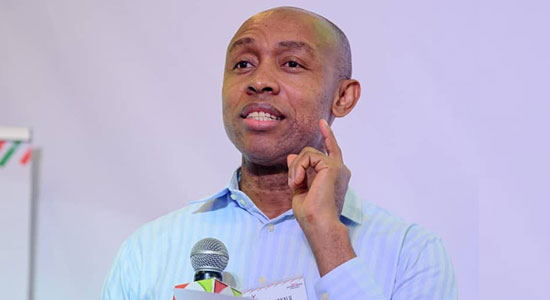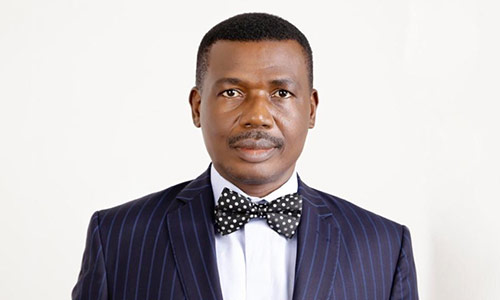West Africa Has Three Months To Save The ECOWAS Court From Chief Justices Who Want To Kill It

By Chidi Anselm Odinkalu
On Sunday, 24 February 2024, the Heads of State and Government of the Economic Community of West African States (ECOWAS) concluded an extraordinary summit in Abuja, the capital city of Nigeria, precipitated by the announcement on 28 January 2024 by Burkina Faso, Mali, and Niger Republic of their joint decision to denounce the Revised Treaty of the Economic Community of West African States (ECOWAS) and leave the regional bloc “without delay.” From within Nigeria, the anchor state in the region, many around government exuding hubris under the guise of patriotism claimed that “the three countries would have more to lose.”
By the time they finished counting the costs of the possible withdrawal of these three countries, however, the extraordinary summit found the costs to the Community rather prohibitive. Between them, Burkina Faso, Mali and Niger represent 10% of the GDP of the region; 17.4% of the population, and 54.35% of the landmass. The Summit concluded that their departure will “have political, socioeconomic, financial and institutional implications for the three countries as well as for ECOWAS as a group” and “will constitute a reduction of the market size of ECOWAS.” They, therefore, issued an appeal to Burkina Faso, Mali, and Niger Republic to “reconsider the decision [to withdraw from ECOWAS], in view of the benefits that all ECOWAS Member States and their citizens enjoy for being part of the Community.”
To sweeten the appeal, the Summit decided to withdraw most of the existing sanctions against the three countries and to invite them “to technical and consultative meetings of ECOWAS as well as to all security-related meetings.”
One of the institutions adversely affected by the issues concerning these three countries is the Court of Justice of ECOWAS. In existence since 1991 and functioning since 2006, the Court is the judicial organ of the Community and is composed by five judges elected by the Heads of State and Government for a tenure of five years.
At the end of July 2022, three judges of the ECOWAS Court respectively from Ghana, Côte d’Ivoire, and Nigeria, were due to rotate out at the end of their terms, to be replaced by judges elected from Burkina Faso, Guinea, and Mali. This would have enabled the two surviving judges from Cape Verde and Sierra Leone to become the senior members judges of the court, all but assuring their succession to the offices of President and Vice-President of the Court. The current Judge President is from Ghana and his Vice is from Côte d’Ivoire.
However, while they are suspended, Burkina Faso, Mali, and Guinea from ECOWAS cannot propose any candidates or their nationals for election into vacancies in any of the institutions of ECOWAS. Confronted as a result with an inability to fill judicial vacancies on the ECOWAS Court, the Assembly of Heads of State and Government of the Community decided at the end of their Summit in Guinea Bissau on 12 July, 2022 that in order “to facilitate the functioning of the Court of Justice in its task of administering justice in the Community…. the judges, nationals of Ghana, Côte d’Ivoire, and Nigeria, are maintained in office until the appointment and entry into office of their successors.”
The effect of this was to maintain the status quo with respect to both the composition of the court and of its leadership, in effect extending the tenure of the judges from the three named countries. In turn, the judges whose ambitions of becoming the new leaders of the court it also frustrated or deferred, did not take this lightly.
The week after the conclusion extraordinary summit of the ECOWAS Heads of State in Abuja at the end of last month, the Chief Justices of the member States of the Community convened also in Abuja as the ECOWAS Judicial Council. The meeting of the Judicial Council also marked the passing of the baton of leadership of the Chief Justices of the Community from Guinea Bissau’s António André Lima to Nigeria’s Olukayode Ariwoola.
The Chief Justices grappled with two things. First, almost assuredly instigated by their Judges on the ECOWAS Court who now want to become leaders of the court, the Chief Justices of Cape Verde and Sierra Leone at the meeting of the Judicial Council loudly complained about the expiration of the tenure of the judges from Ghana, Côte d’Ivoire and Nigeria. At their behest, the Judicial Council resolved to advise the Heads of State to “set in motion the process of filling those vacancies to avoid potential infraction of statutory provisions governing appointment of Judges to the Court.” They were unable to offer any advice to the Heads as to how to do this while the countries from which the putative judges would come remain suspended from ECOWAS. There’s a limit to what the incredible powers of even Chief Justices can accomplish.
The second thing they grappled with was the low level of compliance with decisions of the ECOWAS Court of Justice. On this, they received and considered a report from the Judge President of the Court, Ghana’s Edward Amoako Asante. Thereafter, the Chief Justices divined that the main reason for the low level of compliance with decisions of the Court of Justice is that litigants do not have to exhaust domestic remedies in their respective countries as a criterion for admissibility before proceeding to the ECOWAS Court of Justice.
To address this problem, the Chief Justices promptly decided to constitute a sub-committee of themselves comprising their peers from Cape Verde, Liberia, Sierra Leone, Senegal, and Togo in order to review the treaties and protocols governing the ECOWAS Court of Justice so as to write into them a requirement for exhaustion of domestic and also “explore the possibility of creating a pool of qualified judges to serve as appellate judges on an ad hoc basis.”
In a manner of speaking, this amounts to killing the ECOWAS Court of Justice with an effusion of high judicial attention. In nearly every one of the attending ECOWAS Countries, the office of Chief Justice is a shrine to judicial despotism. The word of the Chief Justice is not open to question. Cases linger in court until the day after eternity except those which affect senior politicians to whom most Chief Justices seem beholden. By comparison, the ECOWAS Court of Justice has been something of a judicial miracle in West Africa. Cases receive prompt attention, the judgments are clear and understandable and litigants are treated as if their issues deserve serious attention. The ECOWAS Court is everything that the national court of the member states are not.
It is, of course, a misconception to take the machete of exhaustion of domestic remedies to a regional court of Justice. The design, treaty law and doctrine applicable to the legal system of the Community makes the idea of exhaustion of domestic remedies anathema to an integrated regional system. Imposing the doctrine on the Court of Justice will render it both irrelevant and impotent.
Around 18 years ago, beginning 2006, former Gambian dictator, Yahya Jammeh, sought to get ECOWAS to implement similar ideas. A concert of concerned citizens and governments in the region rallied and killed it. The true tragedy this time is that it is not a dictator, soldier, or politician who wants to ransack the ECOWAS Court before killing it. Rather, it is Chief Justices of the region wielding with maximum malevolence an appearance of commitment to due process and the rule of law. This is why citizens of the sub-region have a duty to resist them. On May 6-7, the Chief Justices propose to convene again in Abuja to “deliberate on the reports and recommendations of the Committees for adoption.” The citizens of ECOWAS States may have less than three months save the ECOWAS Court.
A lawyer and a teacher, Odinkalu can be reached at [email protected]


